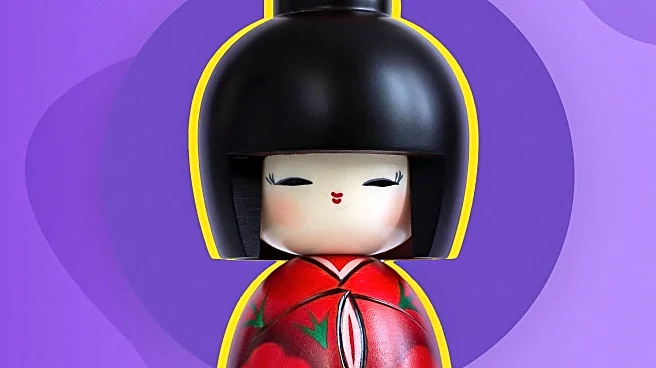What is the story about?
What's Happening?
Labubu dolls, created by Beijing-based toy manufacturer Pop Mart, have become a viral sensation and a popular collectible. However, some parents and Christians on social media platforms like TikTok and X have expressed concerns that these dolls are demonic, claiming they are inspired by Pazuzu, a Mesopotamian god featured in 'The Exorcist.' Despite these claims, experts like Joseph Uscinski, a professor of political science at the University of Miami, suggest that the panic is more about the people who see demonic influences everywhere rather than the dolls themselves. Eckart Frahm, a professor of Assyriology at Yale University, notes that there are no significant similarities between Pazuzu and Labubu dolls, aside from the syllable structure of their names.
Why It's Important?
The panic surrounding Labubu dolls highlights a recurring pattern of moral panic in society, where cultural trends are perceived as threats to traditional values or power structures. This phenomenon is reminiscent of past panics over Dungeons and Dragons, Harry Potter, and rock music, where fears of demonic influence were prevalent. Such panics can influence public perception and consumer behavior, potentially affecting the toy industry and cultural trends. The situation underscores the impact of social media in amplifying fears and misinformation, which can lead to broader societal implications.
What's Next?
As the panic continues to circulate online, it is likely that discussions and debates will persist among concerned parents and religious groups. Toy manufacturers and retailers may need to address these concerns to reassure consumers and mitigate any negative impact on sales. Additionally, experts and scholars may continue to provide context and clarification to dispel myths and educate the public about the historical and cultural origins of figures like Pazuzu.
Beyond the Headlines
The Labubu panic reflects deeper societal issues related to fear of change and the influence of pop culture on religious beliefs. It raises questions about the role of social media in spreading misinformation and the responsibility of platforms to manage such content. The situation also highlights the need for critical thinking and media literacy among consumers to navigate cultural phenomena without succumbing to unfounded fears.















